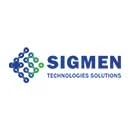What Does A Laboratory Information Management System Mean?
Laboratory information management software (LIMS) is the perfect solution for automating tedious and error-prone recording methods. This software is designed to achieve the utmost accuracy in various industrial laboratory functions - inventory management, data tracking, sample testing, and result recording. Traditional data recording methods have been too outdated to keep up with the demands of modern laboratories.
LIMS software offers built-in electronic lab notebooks to decrease the risk of data loss or misplacement and facilitate the seamless transfer of information. Many labs can use it, including clinical laboratories (such as Hematology, Microbiology, and Immunology), production laboratories, food and beverage laboratories, and natural science laboratories.
Why Use LIMS Software?
- Time-saving and real-time data tracking
- Streamlining of workflow
- LIMS supports global laboratory practices (GLP) and helps generate high-quality data.
- Improves productivity and efficiency
- Labs can easily record and store patient & scientific data. It also helps in the centralization of data and minimizing manual intervention.
- LIMS saves a lot of costs due to automated processes and reduces operational and compliance risks. Moreover, labs can use a licensed SAAS model instead of the entire software program, which is a highly cost-effective method.
Key Features Of LIMS Software
- Reporting & Analytics: If you are looking for a safe and secure method to capture laboratory data, then lab information management system is the perfect solution for your requirements.
- Sample Management: With LIMS sample management, you can store, track, and analyze critical laboratory samples that include results, source, condition, and location.
- Compliance Tracking: You can create records to verify that your lab works in adherence with industry regulations and CGMPs.
- Electronic Data Interchange (EDI): A laboratory information management system allows you to receive data directly from laboratory equipment and transfer it to other destinations like electronic health records (EHRs).
- Workflow Management: The automated data transfer ensures a trouble-free lab operation during the entire processing cycle.
- Quality Assurance: More efficient and easier workflow allows you to look for mistakes and defects and fix the issues on time.
- Document Management: Apart from efficient workflow, the laboratory information management system allows you to upload confidential data into a central library for easy stakeholder access, regulatory compliance, and security.
LIMS Modules: What Are They?
- Inventory Management: By using LIMS software, you can automate and manage the material management process of your laboratory. You also get automated alerts when inventory numbers fall below the specified threshold with LIMS inventory software.
- Laboratory Management: With the help of LIMS integrated laboratory management software, you can collect and manage all your laboratory data in one place. The cloud-based information system empowers you to perform the testing process within a specified duration and helps improve the turnaround time. Additionally, LIMS lab software can improve data quality and streamline workflows.
- Reporting: Lab reports provide important information that helps you make informed decisions regarding your laboratory. During testing procedures, reports are also used to identify errors, check data, and keep up with current trends. You can benefit from a reliable LIMS reporting system by increasing accuracy, improving productivity, tracking real-time, and providing faster and more accurate results.
What Are The Different Type Of LIMS?
Let's look at the different types of LIMS solutions and how they can meet the demands of different labs.
- Laboratory LIMS
Traceability is an important feature of LIMS systems for diagnostics labs and clinical analysis. Analysts can easily track samples and present a clean chain of custody (COC). Moreover, the new generation of LIMS tool can perform complex tasks such as quantitative polymerase chain reaction (qPCR) and sequencing.
- Environmental LIMS software
Samples are an indispensable part of environmental labs; some lab facilities process thousands of specimens daily. For example, LIMS software for laboratory uses gas chromatography-mass spectrometry to test drinking water generate massive amounts of data. Hence, LIMS systems can handle large data, streamline workflow, and reduce administrative demands.
- Educational Research LIMS
In this domain, the main purpose of LIMS software is to collect, analyze, store and share data. It is specifically designed for easy accessibility and efficient functioning of academic labs. Implementing and using the perfect lab information management system ensures high productivity and top-notch quality of all resources.
- Petrochemical and Chemical LIMS
Petrochemical and chemical companies have to deal with large volumes of data. Therefore, LIMS systems must be able to process this data with utmost accuracy. The world's largest oil and natural gas production company Chevron Corp also relies on LIMS software to ease its workload and work under strict industry compliance & safety standards.
- Food & Beverage LIMS
The food & beverage sector must adhere to the government's strict health and safety regulations. It includes the efficiency of keeping a tab on raw and finished products as they pass through the supply chain. Laboratory information management software helps food & beverage labs comply with food traceability laws. In addition, LIMS systems also act as an invaluable asset in standardizing the food production process and the finished good.
- LIMS for Forensic Laboratories
Not only the f&b industry but forensic labs also have to abide by the rules & regulations set by the government. Hence, LIMS software plays a huge role in these laboratories. These software systems help achieve accurate results by handling large volumes of data under chain of custody (COC) protocols.
- LIMS Software for Pharma
Pharmaceutical LIMS software is specifically designed for laboratories, particularly in the pharmaceutical industry. It is used to manage and track data related to laboratory experiments and processes, including sample management, data analysis, and reporting.
Benefits of LIMS
Some specific benefits of LIMS software include:
- Improved data management: Manage and track data related to laboratory experiments and processes, including sample management, data analysis, and reporting. This can help to ensure that data is accurately recorded and tracked and that it is easy to access and analyze.
- Increased efficiency and productivity: Lab LIMS software can help to streamline and automate laboratory processes, reducing the time and effort required to complete tasks. It can also help to facilitate collaboration and workflow management within the laboratory, improving efficiency and productivity.
- Enhanced quality control and assurance: Track and manage the laboratory's quality control and assurance processes, helping to ensure that products meet the necessary quality standards and are safe and effective.
- Better compliance with regulations: Generate reports and other documentation to support regulatory compliance efforts with compliant LIMS software, thereby making it easier for organizations to meet regulatory requirements.
- Greater flexibility and scalability: LIMS software can be customized and configured to meet different organizations' specific needs and requirements. It can be easily scaled to accommodate changes in demand or operations.
Who Uses LIMS?
The ability of LIMS systems to manage valuable data and improve data quality has led various industries from small laboratories to enterprise-level laboratories to use it. Let's look at all the ways this highly innovative tool saves time and streamline the overall process.
- Agriculture Industry
Both government and private agriculture industries trust LIMS systems to handle their daily tasks. They have to test and record all the results and procedures, and LIMS software helps them record and manage data efficiently.
Here is the list of processes and workflows that are supported by the LIMS system:
- Grain Testing
- Moisture Testing
- Soil Microbe Testing
- GMO Testing
- Herbicides
- Composition Analysis Testing
- Seed
- Animal antibiotics
- Fuels
- And many other related and additional testing
- Water Quality, Environmental and Wastewater Plants
Even the smallest of mistakes can have serious consequences in the environmental industry. For example, a municipal water supply testing plant relies on the LIMS system to manage the testing of water for contamination and manage their data at a consistently high standard. Moreover, you'll find LIMS systems in nuclear and radiochemical plants to optimize the testing process and mitigate the risk of errors.
- Food and Beverage Industry
The food & beverage industry relies on large-scale testing to maintain the quality of their products and processing methods. Before LIMS software, the f&b industry depended on spreadsheet programs and paper data. Still, with the implementation of lab information management system, companies can now easily track and control the entire production process within the stipulated time.
Wine and alcohol companies use LIMS software to manage the testing process for pesticides or contaminants in their product. Testing is an imperative aspect when controlling the quality of f&b products.
- Biofuel, Chemical, and Petrochemical Industries
Petrochemical, oil, biodiesel, gas, hydrocarbon, and alternative fuel industries reap the benefits of using LIMS technology. It helps streamline their testing process by flagging the samples containing hazardous material and ensuring that your company complies with EPA & ASTM standards.
- Oil, Mining and Gas Companies
Like all the other industries, oil, mining, and gas companies also do the extensive testing that requires the collection and storage of data. Any error can prove to be disastrous not only for businesses but for the environment as well. LIMS system offers an easy-to-use solution that is reliable and ensures accurate results. Most LIMS tools offers product graphs, protocol templates and many other features that save time and money.
- Pharmaceuticals: LIMS software in pharma can be used to manage and track data related to the production of pharmaceutical products, including data on raw materials, finished products, and quality control measures.
How To Use LIMS Software?
A laboratory information management system enables you to effectively manage each specimen and its data. It allows you to automate the workflow, track information in real-time, improve efficiency, and centralize data without any manual intervention. The automated process of lab information management system reduces operational costs and ensures that the testing process is in compliance with industry guidelines.
How does laboratory information management system work?
The main purpose of implementing and using a LIMS is to record, track and report scientific and sample data in a consistent and structured manner. With the help of a LIMS, each sample can be carefully documented and tracked during its entire lifespan.
Owing to the high level of tracking and reporting in the LIMS, it becomes easier to ensure compliance with the laboratory guidelines (GLP, GMP). This robust tool automates the data recording process, which empowers laboratories to pay closer attention to each sample, ensuring utmost reliability in experiments and providing top-notch results.
Consistent sample management is tricky and time-consuming. Before the regular implementation of LIMS, individual researchers would devise their naming schemes and hand-document their samples and usage. Aside from how time-consuming this was, it also opened a lot of room for error. With a LIMS, a barcode can be assigned to each sample and scanned during major sample lifespan events like storage and usage, driving accuracy and consistency in managing samples.
LIMS improves workflows and documentation
You can now integrate LIMS with your laboratory equipment to import or export sample data for further processing. Many LIMS reporting systems can detect errors during the testing or experimental phase and flag them when required. Further, samples can be moved to other protocols for a thorough examination.
Get real-time information
LIMS lab software closely monitors the entire journey of a sample; hence it has all the information required for generating reports, doing audits, and ensuring maximum quality control. The data is stored on the internet via cloud storage; therefore, researchers can easily access real-time and up-to-date information at any given time.
Maintain data integrity
Manual documentation is prone to errors and is also a cumbersome process, as many samples are tested simultaneously in a lab. It can also lead to a data breach, causing reputational damage to the laboratory. But on cloud-based storage, the information is encrypted and can only be accessed by authorized personnel.
In LIMS systems, the recording, sorting, and reporting data is an automated process, which saves a lot of time and helps in the faster processing of each & every sample.
What Are The Advantages And Disadvantages Of LIMS?
LIMS Advantages
Here are some key advantages of using a laboratory information management system.
- Track Laboratory Results and Detect Aberrations: Feature-rich LIMS laboratory information system consolidates data into a searchable record. Labs can easily visualize this data with the help of graphs and tables.
- Faster Lab Operations: Owing to an efficient sample management process, you'll be able to conduct more lab tests in lesser time. The sample volume increase allows you to earn more revenue and grow your business quickly. It also helps provide top-quality lab results and improve patient outcomes.
- Improved Compliance with Secure Data Management: The privacy-conscious interface and encrypted data of LIMS Software can fulfil the compliance requirements and expectations for your laboratory.
Disadvantages of LIMS software
Although LIMS is a smart choice for any laboratory, it also has some disadvantages, such as:
- Training: Due to the complexity of the LIMS software, the users undergo various training sessions, which can be expensive and time-consuming.
- Adaption is a difficult process: The laboratory staff may need help adjusting to a new laboratory information management system. Some routine tasks like retrieving information, error rectifications, or filling in details can sometimes cause problems due to a lack of proper training.
- Physical Limitations: LIMS lab software system has some physical restrictions such as it must be kept away from heat, the system needs a continuous flow of electricity to run the system and it also requires adequate space which is away from dust and humidity.
- Data backup is required: All LIMS systems must have data backup facility to avoid any data loss during a system crash or disk damage.
Online Vs Offline Laboratory Information Management System
| Online vs Offline LIMS software |
| Basis | Online Laboratory Software | Offline Laboratory Software |
| Managment | Paperless Management | Paper Management |
| Tracking | Comes with a tracking system | Offline system fails to offer this feature |
| Storage | Data is secure due to cloud storage | Prone to data leakages and data loss |
| Data | Data is automatically backed up | Doesn’t have a data backup facility |
| Real-time Information | Users can access and share information in real time | Obtaining information is a time-consuming process |
Key Considerations while Purchasing LIMS Software
Some of the key considerations while purchasing LIMS software are:
LIMS Software Vendor's Experience and History
It would help if you always went for an established vendor with a high success rate. You should read customer reviews about the vendor, and if possible, you can also talk to their old customers.
Ownership Cost
Before you spend your money, you should analyze the pros and cons and the features you are getting. Look at the cost, including the customization required to bring the system into a usable state for your company.
Additionally, check the configuration of the system - Will you be able to configure it yourself or will you need an expert? Does the vendor support modified configurations? Will the original program remain the same when the functionality changes, or will it be changed? Is it expensive or time-consuming to upgrade your LIMS?
Usability of the software
Software should be easy to use, intuitive, and quickly adopted in the organization. All the users should be able to access support & training and reach a support staff whenever required. You should ensure that the software supports the terminology used daily in the laboratory, and users should easily understand the terminology that comes with the software.
Features
Check if the LIMS offers the specific features you are looking for. Secondly, it should have the flexibility to be configured according to your testing facility. Lastly, your LIMS system must have the facility to export all the reports in a simple and easy-to-understand format that can be directly forwarded to the appropriate department.
Top 10 LIMS Software for laboratory
Here is the list of best LIMS software in India for Business .
Popular LIMS System Trends
- Cloud-Based Database
Cloud-based LIMS systems offer access to data storage anytime through any internet-connected device. This also aids laboratories in storing information in a safe & secure manner, easy accessibility in remote locations, automated backup, and disaster recovery.
- Smarter and Easier Data Management
Machine learning (ML) and Artificial Intelligence (AI) algorithms can make decisions based on insights and previous research. Managers can now easily conclude due to analysis prediction capability and much better data integration. Moreover, AI can learn from past mistakes to improve itself, which results in high accuracy and faster processing time.
- Quick and Hassle-Free QA/QC
Quality control and quality assurance won't be required at the end. Instead, different KPI checks will be done during different processing points. This method will help handle errors without affecting the ongoing data management process.

























